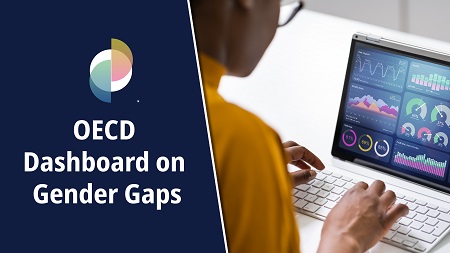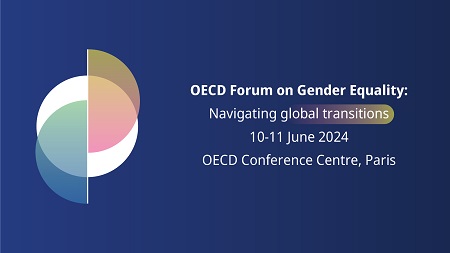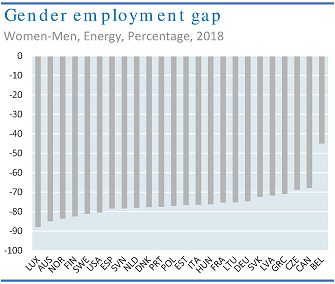The OECD Gender Data Portal includes selected indicators shedding light on gender inequalities in education, employment, entrepreneurship, health, development, governance, digital and energy, showing how far we are from achieving gender equality and where actions is most needed. The data cover OECD member countries, as well as partner economies including Brazil, China, India, Indonesia, and South Africa.
OECD Dashboard on Gender Gaps
The OECD Gender Dashboard gives a snapshot of how a country’s gender equality policies and outcomes compare to that of other OECD countries across policy domains.
OECD Forum on Gender Equality
The 2024 OECD Forum on Gender Equality will address advancing gender equality amid green, energy, and digital transitions.
Employment
Education
Entrepreneurship
Health
Development
Governance
Digital
Energy
Why don’t more women code? - Significantly more men than women become ICT specialists, and this gap persists across countries. Differences in young men and women’s education in science, technology, engineering (including ICT fields), and mathematics (STEM); aspirations for jobs in the information and communication technology (ICT) sector; and ICT skills are clear.
The impact of personal income taxation on women’s labour force participation - The design of income taxes can influence the incentives for workers to enter the labour market as well as the nature of their involvement. Due to differences between how men and women engage with the labour market, personal income taxation can differ in how it affects men and women.
Early childhood education and care (ECEC): A vital component of the family policy framework in OECD countries - ECEC is a vital component of the family policy framework in OECD countries. Since mothers frequently shoulder the majority of the caregiving responsibilities, ECEC can help mothers find their desired work/family balance when returning to work after maternity/parental leave.







